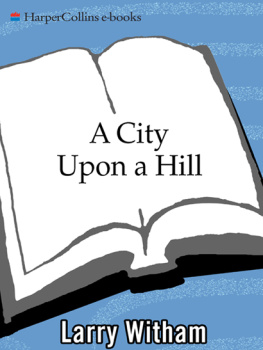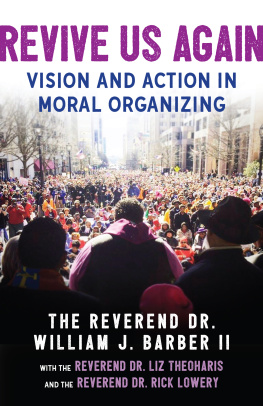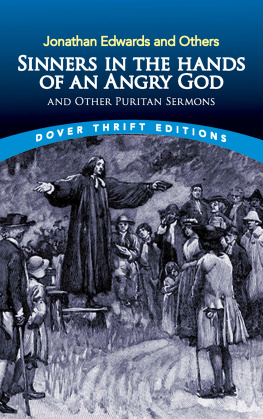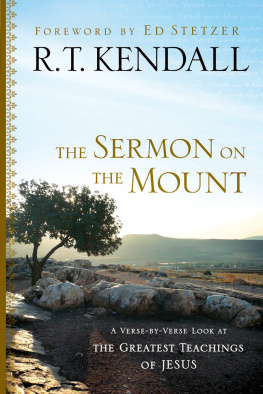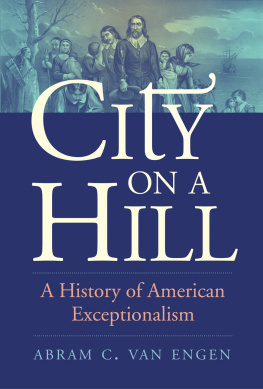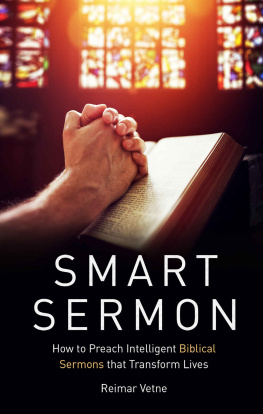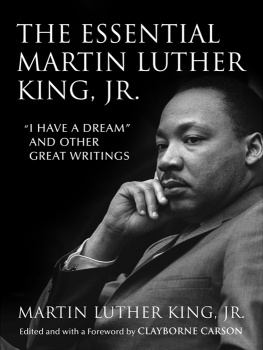A City Upon a Hill
How Sermons Changed the Course of American History
Larry Witham

Contents
Introduction
Of Words and Nations
I
The Colonial Period
(16071800)
1. Robert Hunts Library
The Sermon Comes to America
2. The Three Covenants
Preaching on Order and Liberty
3. Jeremiah in America
Times of Troubles and Revivals
4. Pulpits of Sedition
The Rhetoric of Revolution
II
National Period
(18001900)
5. The Movement West
Frontiers of Sect, Class, and Sex
6. Dreams of Utopia
Preaching American Identity
7. Words of Freedom
Exhorting Slavery and Abolition
8. The God of Battles
Interpreting Victory and Defeat
9. Reconstructing America
Progress, Darwin, and the Lost Cause
10. The White City
Urban Tales and Imperial Designs
III
Modern Period
(1900)
11. Modern Times
A Battle over Women, Booze, and Bibles
12. Radioland
Preaching Faith, Fear, and Fun
13. The American Way of Life
Popular Faith in an Insecure Age
14. From Left to Right
Promised Lands and Cities on Hills
Conclusion: The Publick Religion
The Sermon as Four Habits of Mind
Every time Americans think we have confronted something new, plummeted to a nadir, or reached a national apex, we should read our own four hundred years of history. That has been my pleasure in this project, something made possible by countless careful scholars and archivists. Thanks to them, sermons from Americas beginnings to the present are easy enough to find. On this front as well, I am indebted to staff at the Library of Congress and to the University of Maryland, Catholic University of America, American University, and Wesley Theological Seminary libraries. Many others were my helpful guides on research visits to Massachusetts, New York, Ohio, Kentucky, Georgia, and South Carolina.
In recent years, a number of talented scholars have reassessed all of American religious history. They have proffered new theories and questioned old ones. I have adopted the historical arguments that seemed persuasive to me, and the sources will be evident by the notes and a bibliography. I would like to thank historian Edwin Gaustad for reading the manuscript. As ever, the work could not go forward without the able help of my editor at HarperSanFrancisco, Eric Brandt, and my agent, Giles Anderson.
As will be seen, sermons from our colonial period used old-style English, which I have generally kept intact. Furthermore, the sermon is a spoken event and always loses something when it is reduced to print or quoted piecemeal. Some historical sermons are at best careful recollections or reconstructions. Probably the greater obstacle to treating this topic, however, is reflected in Websters very definition of a sermon: any serious talk on behavior, responsibility, etc., esp. a long, tedious one. In my narrative, I have tried to alleviate those negatives, beginning with an amusing old style in the section openings, reminiscent of Voltaires Candide, where chapters open with teasers such as How Candide met his former philosophy teacher, Dr. Pangloss, and what ensued. I hope I have shown that a sermon history can be short and lively, if inescapably moralistic.
Historical Events | Sermon Events |
1607 | The Virginia Company founds Jamestown. |
1619 | First General Assembly in America at Jamestown and arrival of first African slaves. |
163040 | The Great Migration to Massachusetts Bay Colony. | Massachusetts Bay Colony governor John Winthrop in 1630 preaches A Model of Christian Charity, a blueprint for Puritan society and a lasting city upon a hill symbol in American rhetoric. |
John Cotton preaches the first election-day sermon at the Boston meeting house in May 1634, a precedent for the nations inaugural speeches by presidents. |
1636 | Connecticut and Rhode Island founded. | Anne Hutchinsons preaching on radical grace in 1636 prompts Massachusetts to restrict Hutchinsonian immigration and deport her to Rhode Island. |
164260 | English Civil War, Puritan rule, and Restoration of the monarchy. | During New Englands 1662 drought, Michael Wigglesworths Gods Controversy with New England begins a jeremiad tradition in American oratory. |
Leading Bostonian Increase Mather preaches The Day of Trouble Is Near in 1674, helping to interpret Americas first great devastation, King Philips War between settlers and Indians. |
167576 | King Philips War between Indians and New England settlers. |
1692 | Salem witch trials. | Cotton Mather preaches The Wonders of the Invisible World amid the 1692 Salem witch hysteria, a period that sobers America about unfounded witch hunts. |
1732 | Georgia established as thirteenth colony. |
1740 | Naturalized residents of one colony allowed citizenship in other twelve. | The Great Awakening divides American denominations, driven by such sermons as Presbyterian Gilbert Tennents Dangers of an Unconverted Ministry on March 8, 1740, in Maryland. |
Jonathan Edwards revives a flagging Calvinism with his July 8, 1741, sermon, Sinners in the Hands of an Angry God, at Enfield, Connecticut. |
To combat religious emotionalism, Boston Congregationalist Charles Chauncy preaches a rational Enlightenment faith in his July 1742 sermon, Enthusiasm Described and Cautioned Against. |
1747 | Ohio Company organizes to settle western lands. | Bostons Jonathan Mayhew gives colonials an inkling of rebellion against British royalty in his February 1750 sermon, Unlimited Submission, later called a catechism of the Revolution. |
175463 | French and Indian Wars in North America. |
1765 | The Stamp Act tax by Parliament. |
1775 | Battles of Lexington and Concord. | From London, Methodism founder John Wesley sends his mid-1775 Calm Address to Our American Colonies, urging obedience to British taxation and rule. |
1776 | Declaration of Independence. | John Witherspoon, president of Princeton College, in May 1776 justifies war in his widely printed sermon Dominion of Providence over the Passions of Men, and signs the Declaration of Independence. |
1789 | First U.S. Congress. | The Jewish voice in America becomes public on November 26, 1790, when Gershom Mendes Seixas preaches a Thanksgiving Sermon at Shearith Israel Congregation, New York City. |
1796 | Washingtons Farewell Address. | Yale College president Timothy Dwight preaches against European atheism and conspiracy in his July 4, 1798, sermon, The Duty of Americans, which espouses keeping the Sabbath. |
1800 | Jefferson elected president to new Washington, D.C., capital. |
1803 | Louisiana Purchase and Lewis and Clark expedition. | In Connecticut, Lyman Beechers antidueling sermon in 1804 and sermons on temperance in 1826 spur Americas reform movements. |

